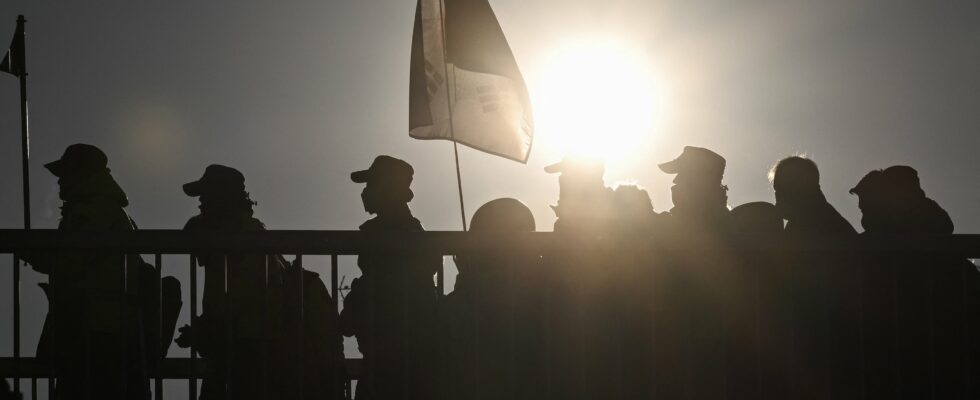Friday January 3, 8:03 a.m. Negotiations are underway. The bodyguards of the deposed South Korean president finally give the green light. Around fifty officials from the Corruption Investigation Office (CIO) and police officers entered the presidential residence. But the mission is still far from accomplished.
Minibuses and cars used by the Presidential Security Service (PSS) block the interior doors of the building. Behind the vehicles: hundreds of PSS agents join hands and form a human chain. Investigators will have to pass this new test to try to execute the arrest warrant against South Korean President Yoon Suk-yeol, accused of insurrection.
After six hours of confrontation, at 1:30 p.m. (local time), the IOC finally renounced the arrest of the deposed president, citing concerns for the safety of its staff. In a statement, the Senior Corruption Investigation Bureau expressed “deep regret” over the situation, accusing the politician and his security service of failing to follow legal procedures. But a few hours after the events, a question remains: who are these guards, ready to defy justice to protect a deposed president?
Park Jong-joon, the man behind the blockade
Created in 1963, the PSS is the South Korean equivalent of the American Secret Service, responsible in particular for ensuring the security of the Head of State and the presidential residence. Problem: the law on presidential security grants him considerable powers, allowing him, for example, to take all the measures he deems necessary to secure the place where the head of state is located. Its members, handpicked from the ranks of the police, army and intelligence services, are commanded by officials directly chosen by the president. Its first leader, Kim Yong-hyun, was a former school friend of Yoon Suk-yeol.
At its head now: Park Jong-joon, the person who initiated this blockade. Born in 1964 in Gongju, South Chungcheong Province, the current PSS chief began his career by taking the senior civil service exam in 1985, as the youngest candidate in the competition. The South Korean then spent 26 years in the police ranks, serving in various positions, before retiring at the end of 2011.
From 2013 to 2015, he became deputy head of the PSS, under the presidency of Park Geun-hye, before marking his return to the service in September 2024, as head of the PSS. From his appointment the tone was set: “The security of the president is an important task directly linked to national security. I will do everything in my power to carry out my task impeccably and ensure that he “There should be no gap in the protection of the president,” he declared when he took office.
An arrest warrant valid until January 6
Other people also made the trip on January 3. While Yoon Suk-yeol was holed up in his residence, hundreds of his supporters gathered outside the building, chanting slogans promising to protect the ousted president. Some even waved South Korean and American flags, believing that the investigation was politically motivated.
The events that led to this political crisis date back to December 3, when President Yoon Suk-yeol declared martial law in an attempt to counter “anti-state forces” and political opposition. This decision, seen as a power grab, sparked widespread indignation and immediate political fallout. A few hours later, the South Korean National Assembly almost unanimously overturned the decision. On December 14, Parliament voted to impeach the president. If the arrest warrant against the head of state is valid until January 6, the IOC has, for the moment, decided to cancel his arrest, judging that it was “practically impossible”.
